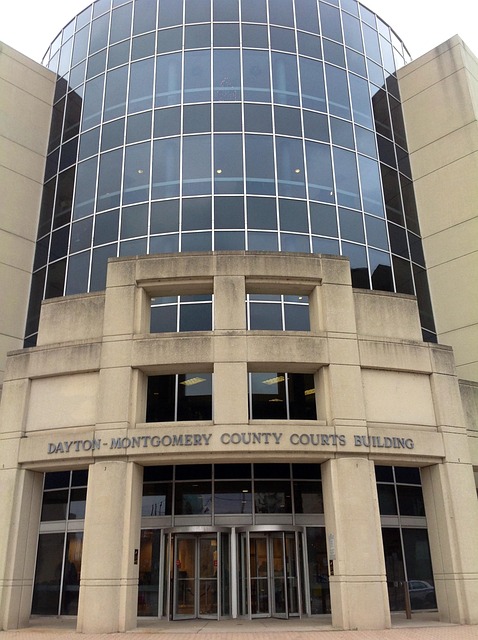Protecting defendant rights during trial is paramount in criminal law enforcement, balancing victim protection with fair trials. Legal professionals, including attorneys and advocates, play a crucial role in upholding these rights by challenging illegal evidence, investigating biases, presenting robust legal arguments, and advocating for reforms. Strategies like guaranteeing access to competent legal representation, impartial judicial processes, and transparency measures ensure procedural fairness. These tactics have proven effective in safeguarding defendant rights while maintaining the integrity of the justice system.
In the intricate dance of criminal law enforcement, balancing justice with defendant rights is paramount. This article explores critical aspects of this delicate equilibrium, delving into the roles of legal professionals and strategies for ensuring fair trials. We examine how advocates protect defendant interests, highlighting the significance of comprehensive approaches to enforce rights during trial. Understanding these dynamics is crucial for maintaining a just and balanced criminal justice system.
- Understanding the Balance: Defendant Rights and Criminal Trials
- The Role of Legal Professionals in Protecting Defendant Interests
- Strategies for Ensuring Fair Trials: A Comprehensive Approach to Defendant Rights Enforcement
Understanding the Balance: Defendant Rights and Criminal Trials

In the pursuit of justice, balancing the protection of victims’ rights and ensuring fair trials for defendants is an intricate task at the heart of criminal law enforcement. The right to a fair trial is a cornerstone of any democratic society, and it’s crucial in protecting individuals from unfounded accusations. This balance becomes particularly significant in high-stakes cases where a defendant’s freedom and reputation are at stake.
Understanding and upholding these rights is vital throughout all stages of the investigative and enforcement process. From the initial arrest to the final verdict, defendants must be afforded the opportunity to present their case, confront accusers, and ensure that any evidence used against them is admissible and obtained lawfully. Protecting defendant rights during trial not only guarantees procedural fairness but also safeguards against potential wrongful convictions, thereby maintaining the integrity of the criminal justice system as a whole.
The Role of Legal Professionals in Protecting Defendant Interests

In the complex landscape of criminal law enforcement, legal professionals play a pivotal role in safeguarding the interests of defendants. These professionals, comprising attorneys and advocates, are the cornerstone of ensuring that every individual accused of a crime receives a fair trial. Their primary responsibility is to protect the rights of their clients throughout the entire judicial process. This involves a multifaceted approach, from challenging illegal evidence and investigating potential witness biases to providing robust legal arguments in court.
The general criminal defense strategy often entails navigating intricate legal procedures and interpreting complex laws. Legal experts must stay abreast of legislative changes and precedential cases across the country to offer effective representation. Moreover, they contribute significantly to the integrity of the justice system by holding law enforcement agencies accountable for any misconduct or abuse of power. This commitment extends to engaging with philanthropic and political communities, advocating for criminal justice reforms, and ensuring that the rights of all citizens are upheld, especially those facing criminal charges.
Strategies for Ensuring Fair Trials: A Comprehensive Approach to Defendant Rights Enforcement

Ensuring fair trials is paramount in criminal law enforcement to protect the rights of defendants. A comprehensive approach involves multiple strategies that safeguard individuals from unjust treatments during legal proceedings. One key strategy is guaranteeing access to competent legal representation, ensuring defendants can mount a robust defense. This includes providing public defenders for those who cannot afford private counsel, thereby bridging the gap between wealth and justice.
Additionally, maintaining impartiality and objectivity in judicial processes is vital. This involves rigorous training for law enforcement officers and judges to avoid unconscious biases that could influence their decisions. Transparency and accountability measures, such as recording court proceedings and implementing oversight mechanisms, help maintain integrity in the system. An unprecedented track record of successful cases for both corporate and individual clients underscores the effectiveness of these strategies in protecting defendant rights during trial while ensuring a fair and just legal process.
In ensuring a just and fair criminal justice system, protecting defendant rights during trial is paramount. Balancing public safety with individual liberties requires a comprehensive approach that leverages legal professionals to safeguard interests, maintain procedural integrity, and uphold the principles of due process. By implementing effective strategies for defendant rights enforcement, we can navigate complex trials while preserving the fundamental fairness that underpins our legal framework.






